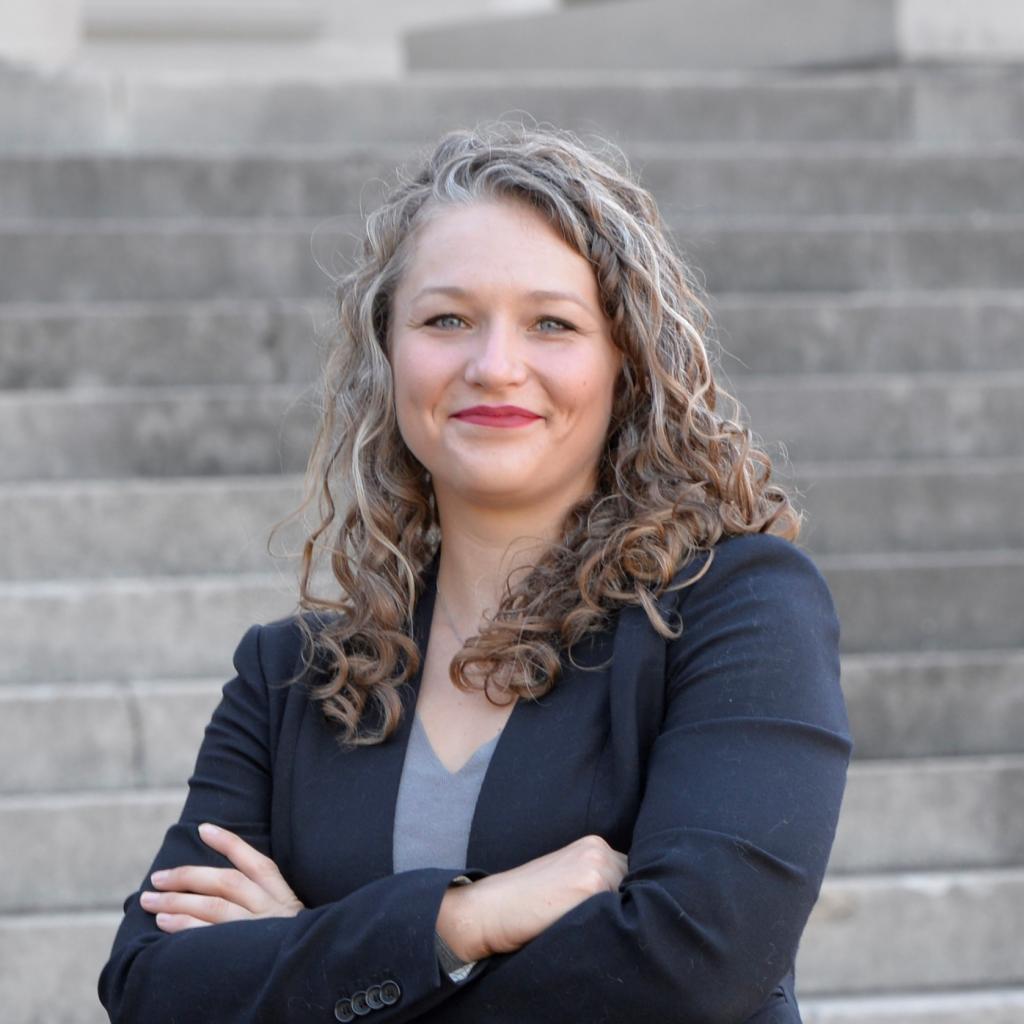How Young Is Too Young to Be a Police Officer?
In discussions of police brutality, an important issue that is neglected is the age—and, therefore, developmental capacity—of the officers. That needs to change in order to limit harmful policing.

Published by The Lawfare Institute
in Cooperation With

On Aug. 9, 2014, when Officer Darren Wilson killed Michael Brown, Wilson was 28 years old. He had joined his first police department in Jennings, Missouri, in 2009 when he was 23. After the department was disbanded in connection with financial impropriety in 2011, Wilson joined the Ferguson Police Department.
Discussions of the officers who shoot and kill usually focus on their race, their gender, and sometimes their histories of personal misconduct or violence. Those details are important. One thing rarely mentioned is the officer’s age. In a new article, I argue that ignoring age in hiring perpetuates and exacerbates harmful policing and that the minimum age at which police are hired must be reconsidered in order to reduce the harm police officers cause.
Most U.S. states set minimum hiring ages for police between 18 and 21 years old. That means these 18- to 21-year-olds have access not only to guns, something that is beginning to be questioned in the context of gun purchases, but also to the imprimatur and power of the state. The Supreme Court’s “children are different” jurisprudence, informed by neuroscience and psychology, has dramatically changed thinking about adolescence in the law. More recently, this science has begun to influence thinking about emerging adults in the criminal legal system, but not much thought has been given to how the research should inform the qualifications for those in charge of that system.
One state stands out for its attention to this issue. In 2021, California state legislators, relying on past actions taken to change how the state treats young people accused of crimes, proposed a bill to increase the minimum age for police hiring to 25 years old. After pushback from law enforcement, they were only able to pass the bill with a 21-year-old minimum hiring age, up from the previous minimum of 18. Why did legislators view this as an important change?
Scientists agree that people between ages 18 and 25—sometimes called “emerging adults”—continue to undergo biological and psychological changes that influence the way they behave. Put more simply, they have not fully matured. This lack of maturity manifests in incapacities that make emerging adult officers ill-suited to the job of policing. What’s more, the way policing affects emerging adults may mean that joining the force during this period of their lives will change the way those officers police throughout their careers.
Though police spend a minority of their time dealing with crime, their jobs require a great deal of personal interaction, sometimes in tense situations. These conditions require police to be calm, think on their feet, and have strong emotional self-regulation skills. In emergency situations, where, as the Supreme Court has said, “[p]olice officers are often forced to make split-second judgments,” those judgments should be as well-considered and reasonable as possible. Unfortunately, emerging adults’ developmental capacities make this unlikely.
Think about the impulsivity and riskiness of teen drivers. Laws restrict who teens can have in the car with them when they are driving because of concerns about the dangers involved when teens drive with other teens. And the drinking age was raised to 21 to decrease drunk driving among teens. But emerging adults are more likely to engage in high-risk behaviors, including risky driving behaviors, than are adolescents. This may help explain why younger police officers are more likely than their older counterparts to engage in high-speed chases, and more likely to end those chases with crashes and injuries.
Another concern is how emerging adult police officers’ psychosocial immaturity will affect them in a potential use-of-force situation. Emerging adults are more likely than older adults to perceive a threat where there is none, and their judgment becomes even more inaccurate under high-stress circumstances. This means that emerging adult police officers may be more likely than older officers to perceive an innocuous object as a threatening one—say, a gun—and they are more likely to respond with force before they realize their mistake.
Another side of hiring emerging adult police officers that the California bill was less focused on was the potential long-term effects of bringing emerging adults into policing organizations. Proponents of police reform have long been critical of the subliminal (and sometimes explicit) messages of police training: That it’s us versus them, that legal rules are obstacles in the way of crime-fighting, and that danger lurks around every corner. These messages embedded in police training are a form of occupational socialization. Emerging adults, whose identities and values are still cohering, are even more likely than adults to be swayed by this messaging. As a result, even if police agencies attempt to shift their internal cultures by bringing in young recruits, these efforts are unlikely to be successful.
An officer’s occupational socialization is reinforced further by the legal socialization that results when messages from training about the law prove true. As innumerable scholars have described, police accountability mechanisms are largely ineffectual. Even in the context of departments in which leadership seeks to hold officers accountable for egregious conduct, law enforcement officers’ bills of rights and police unions often create a system of investigation and accountability far different from that faced by ordinary people. This legal context shapes emerging adult officers’ attitudes, values, and behavior. When bolstered by the in-group solidarity often shorthanded as the “blue wall of silence,” the pressures to conform and view their colleagues as the law are heightened and are likely to persist throughout an officer’s career.
Finally, emerging adult officers’ own well-being is likely jeopardized by police work. Since emerging adults’ brains are still developing, they are more vulnerable to trauma and chronic stress. In other high-stress work environments, emerging adults have been shown to have a two- to threefold increase in their likelihood of developing drug dependence. Similarly, younger officers are more likely to develop trauma symptoms and show less traumatic growth after exposure to traumatic events. Policing, a stressful job at any age, is not conducive to long-term health and well-being for emerging adult officers. Those who began their careers as emerging adults may also be more likely to develop patterns of absenteeism or leave the department earlier than their peers who started as mature adults.
The combination of emerging adults’ incapacities and the effects of developing within police agencies means that agencies must move away from hiring police younger than 25. While the California legislature’s experience demonstrates that gathering the political will to make these changes will not be easy, it is necessary to develop less harmful policing. Some additional context should help lower the barriers to this legislation. First, a relatively small percentage of police are under 25 years old. Second, preventing people from joining police agencies under 25 will have long-term benefits both for agencies and for individual officers. Those benefits will build as more agencies adopt a higher, standardized hiring age.
Achieving a degree of standardization is important so that emerging adult officers do not start in what are often lower-paying policing jobs that hire younger people and later move to other, better-paying agencies. Hiring police who started at a younger age at another agency undermines many of the reasons to increase hiring age in the first place. It also puts the onus on agencies that do not hire 18- to 24-year-olds to carefully consider the effects previous policing experience might have had on officers who seek to move laterally into their departments.
Changes to police hiring will take time, so I also propose moving current emerging adult officers into positions that are better adapted to their developmental stage. Though still maturing in other areas, emerging adults have more or less fully developed cognitive capacities. This means that cold-cognition analytical skills are available to emerging adult officers in ways that hot-cognition reasoning is not. Therefore, crime scene analysis or witness interviews may be a better use of emerging adult police officers’ time than patrol work. This, too, is likely to face resistance within police forces, as older officers are less likely to want to be on the streets. But this approach may allow police agencies to refocus resources in line with critiques about police prioritization of low-level street enforcement over big-case crime-solving. These roles would also encourage emerging adult officers to cooperate more closely with the public, reorienting their occupational socialization in beneficial ways. For the same reason, I propose creating and expanding alternative public service programs for emerging adults that place them in contact with communities similar to those served by police without an organizational culture that emphasizes threat and danger.
While not enough is known about how age influences policing, what is known about emerging adult development should give us pause. Emerging adults lack the capacities that are necessary to effectively engage in police work, and the job itself exposes them to occupational and legal socialization and trauma that make emerging adult police likely to perpetuate some of the most problematic aspects of policing. While hiring older officers will not change policing completely, nor overnight, increasing police hiring ages is an important harm reduction measure that cannot be ignored.



.jpg?sfvrsn=676ddf0d_7)

